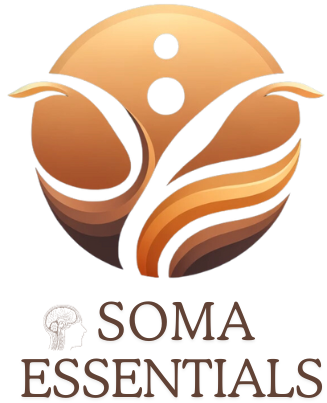Can A Strong Mind-body Connection Help In Overcoming Addictions And Unhealthy Habits?
In the midst of battling personal afflictions such as addictions and unhealthy habits, the strength of your mind-body connection could be the vital key to your victory. The article “Can A Strong Mind-Body Connection Help In Overcoming Addictions And Unhealthy Habits?” explores this concept in-depth by examining how mental wellness and physical health are intricately linked, and how fostering this connection can play a transformative role in overcoming substance abuse, dependence, and detrimental lifestyle practices. As you read on, you’ll gain insight into this innovative and holistic approach to breaking free from the chains of addiction and charting a course towards a healthier life.

Understanding the Mind-Body Connection
The mind-body connection represents the relationship between our psychological, emotional, and mental states (the mind), with our physical body and behaviors. It refers to how our thoughts, feelings, and beliefs can influence our bodily functions and health and vice versa.
What is the Mind-Body Connection
The mind-body connection hinges on the concept that our mind and body are not isolated entities, but rather interconnected systems that significantly impact each other. This connection signifies that psychological and emotional factors can affect our physical wellbeing, and physical factors can influence our mental wellbeing.
Examples of the Mind-Body Connection
For example, you might experience a rapid heartbeat and sweaty palms when you’re anxious or stressed (emotions affecting the body). Conversely, a consistent lack of sleep (a physical condition) can result in feelings of irritation or depression (body affecting the mind).
Scientific Research Supports the Mind-Body Connection
Numerous scientific studies corroborate the mind-body connection. Research has shown that stress and negative emotions can precipitate physical symptoms like headaches, high blood pressure, and even heart disease. Equally, positive emotions and stress-management techniques can enhance physical health and immunity.
The Role of Mind-Body Connection in Health
The mind-body connection plays an essential role in both physical health and mental health. By acknowledging this connection, you can better manage stress, and this may induce beneficial changes to your overall wellbeing.
How Mind-Body Connection Influences Physical Health
The mind-body connection can significantly impact physical health. For instance, chronic stress or anxiety can lead to physical symptoms such as heart disease, digestive issues, and weakened immune system.
Mind-Body Connection and Mental Health
Conversely, physical ailments or discomfort can influence mental health. For example, persistent pain can lead to feelings of anxiety or depression.
Managing Stress Through Mind-Body Connection
Understanding and utilizing the mind-body connection can help manage stress more effectively. Techniques such as deep-breathing exercises, yoga, and meditation can help calm the mind, which in turn, can positively impact physical health.
Unhealthy Habits and Addictions: A Deep Dive
Unhealthy habits and addictions are behaviors or practices that affect your physical, mental, or emotional wellbeing negatively. They often stem from an inability to cope with stress or emotional distress.
Defining Unhealthy Habits
Unhealthy habits refer to behaviors that may negatively impact your health or well-being. These could include poor dietary habits, insufficient physical activity, excessive screen time, or lack of sleep.
Understanding Addictions
Addiction, on the other hand, is a complex condition characterized by compulsive substance use or engagement in a particular behavior, despite harmful consequences. It’s usually a result of changes in brain function and structure.
Psychological and Physical Implications of Addictions and Unhealthy Habits
Both addictions and unhealthy habits have profound psychological and physical implications. These can range from mental health issues like depression and anxiety to physical problems such as heart disease, respiratory issues, or obesity.

The Mechanism of Addictions and Unhealthy Habits
Understanding how habits form and why addictions develop is crucial in addressing these issues effectively. Neurology plays a significant role in this mechanism.
How Habits Form
Habits are formed through a process called ‘looping’. First, a cue or trigger initiates the behavior. The routine follows, and finally, a reward is obtained, reinforcing the behavior. Over time, this loop becomes automatic, and the habit is formed.
Why Some Addictions Develop
Most addictions develop because the substance or behavior in question stimulates the brain’s reward system, creating feelings of pleasure. The craving for these pleasurable emotions drives repeated use or behavior, leading to addiction.
The Brain’s Reward System and Addiction
The brain’s reward system plays a pivotal role in addiction. When a substance or behavior triggers this system, it rewards the brain with dopamine—a pleasure neurotransmitter. This intense feeling of pleasure compels a person to repeat the behavior, leading to dependency and addiction.
How the Mind-Body Connection Can Influence Addictions and Habits
The mind-body connection can play a critical role in influencing and overcoming addictions and unhealthy habits. Understanding this connection allows you to effectively manage your thoughts, feelings, and emotions and influence your behavioral choices.
Using Mindfulness to Interrupt Unhealthy Habits
Mindfulness refers to the practice of being fully present in the moment. It helps increase your awareness of your thoughts, feelings, and body sensations. By becoming more mindful, you can recognize triggers that lead to unhealthy habits or addictive behaviors and intervene before the undesirable behavior takes place.
The Power of Mind-Body Therapies in Addiction Treatment
Mind-body therapies like meditation, yoga, breathing exercises, and mindfulness-based interventions have proven effective in addiction treatment. They help enhance self-awareness, manage stress, and promote relaxation—all of which are essential elements in addiction recovery.
Harnessing the Body’s Signals to Change Behavior
Your body continuously sends signals about its state of health. By tuning into these signals, you can identify underlying issues that may contribute to addictive behaviors or unhealthy habits. For instance, overeating might be a response to stress, and by recognizing this, you can seek healthier stress management methods.
Scientific Evidence Supporting Mind-Body Connection in Overcoming Addictions
Cognitive-behavioral therapy, mindfulness-based interventions, and various holistic therapies have scientific backing as effective treatments for addiction, further emphasizing the importance of the mind-body connection.
Cognitive-Behavioral Therapy and Addiction
Cognitive-behavioral therapy (CBT) helps individuals identify negative thought patterns that lead to harmful behaviors or substance abuse. By challenging and changing these thoughts, individuals can learn to modify behavior and manage addiction.
Mindfulness-Based Intervention in Addiction Treatment
Mindfulness-based interventions, such as mindfulness-based stress reduction (MBSR) and mindfulness-based cognitive therapy (MBCT), help individuals focus on the present moment, mitigating the influence of past experiences and future anxieties that often contribute to addiction.
Success of Holistic Therapies in Addiction Treatment
Holistic therapies like yoga, music therapy, and acupuncture have shown success in addiction treatment. They provide alternative ways to handle stress and negative emotions, fostering general wellness and recovery.
Creating a Stronger Mind-Body Connection
Creating a stronger mind-body connection involves a combination of mindfulness techniques, regular exercise, and a balanced diet to improve overall health and wellbeing.
Mindfulness Techniques
Mindfulness techniques, such as meditation, deep-breathing exercises, and yoga, can help establish a stronger mind-body connection. These practices increase self-awareness and enhance the ability to manage stress and emotions.
Benefits of Regular Exercise
Regular physical activity benefits both the mind and body. It improves mood, reduces stress, and promotes healthy sleep patterns. By maintaining regular exercise, you can strengthen your mind-body connection and enhance overall wellbeing.
Role of a Balanced Diet
A balanced diet is key to nurturing the mind-body connection. Proper nutrition fuels the brain and body to function effectively, influencing mood and energy levels. Incorporating a variety of fruits, vegetables, whole grains, lean proteins into your diet can contribute to a healthier mind-body connection.
Challenges in Using Mind-Body Connection to Overcome Addictions
While the mind-body connection offers a promising approach to overcoming addictions and unhealthy habits, it’s not without challenges. Overcoming these challenges often requires professional guidance, as well as consistency and patience.
Potential Difficulties and How to Overcome Them
Potential difficulties might include resistance to change, dealing with withdrawal symptoms, and grappling with the root causes of addiction or unhealthy behavior. Overcoming these difficulties often demands resilience, support, and different strategies such as therapy, medication, and support groups.
Significance of Professional Guidance
Professional guidance from therapists, coaches, or counselors is essential when it comes to addressing addictions or unhealthy behaviors. Professionals can provide strategies and treatments tailored to your individual needs and situation, ensuring that you receive the best possible support.
The Importance of Consistency and Patience
Overcoming addictions and unhealthy habits is a journey that requires consistency and patience. It’s not a quick fix or an overnight transformation; it’s about making small, continuous changes that accumulate over time to create a significant impact.
Case Studies Where Mind-Body Connection Helped Overcome Addictions
Several case studies have evidenced the usefulness of the mind-body connection in overcoming addictions, further emphasizing its therapeutic potential.
Case Study 1: Overcoming Alcohol Addiction
Patient ‘X’ struggled with alcohol addiction for years. By incorporating mindfulness-based intervention in their treatment, the patient was able to understand their triggers better and implement strategies to manage cravings effectively, leading to a significant improvement in their behavior and recovery process.
Case Study 2: Breaking Free from Smoking Habit
Patient ‘Y’, a chain smoker, managed to break free from their smoking habit by incorporating yoga into their routine. Yoga helped them deal with withdrawal symptoms, manage stress, and stay centered and focused, which significantly assisted in quitting smoking.
Case Study 3: Winning Battle Against Drug Dependency
Patient ‘Z’, a drug addict, underwent cognitive-behavioral therapy as part of their treatment plan. This therapy helped them understand how their thoughts and feelings fueled their drug use and equipped them with practical strategies to tackle these harmful patterns, leading to successful recovery.
Practical Tips for Leveraging Mind-Body Connection to Break Addictions and Unhealthy Habits
Building a healthier lifestyle through the mind-body connection involves creating and maintaining a wellness routine, staying consistent with mind-body practices, and seeking professional help when needed.
Creating a Mind-Body Wellness Routine
A well-rounded wellness routine would include a mix of physical activity, balanced diet, relaxation techniques, and mindfulness practices. This routine should align with your personal preferences, abilities, and lifestyle, making it easier to maintain over time.
Sustaining Mind-Body Practices
Consistency is key in making mind-body practices a part of your lifestyle. Set realistic expectations, start small, and slowly integrate these practices into your daily routine. With time and regular practice, you’re likely to see positive changes in your behavior and overall wellbeing.
Seeking Professional Help When Needed
Don’t hesitate to seek professional help if you’re struggling with addictions or unhealthy habits. Professionals can provide the support, guidance, and resources you need to overcome challenges and make lasting changes.
In conclusion, the mind-body connection does indeed play a significant role in overcoming addictions and unhealthy habits. By understanding this connection and how it influences health and behavior, you can take a proactive approach to manage stress, improve overall wellbeing, and lead a healthier, more balanced life.

